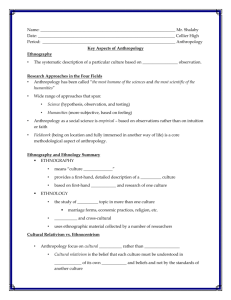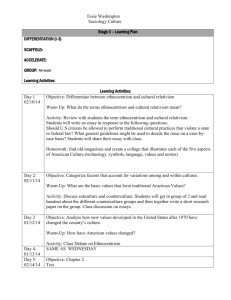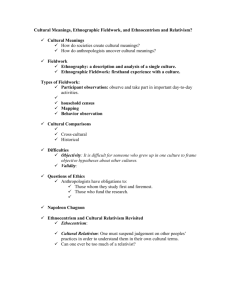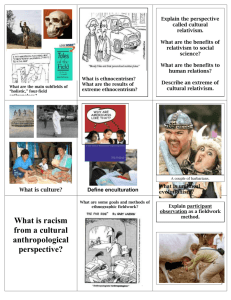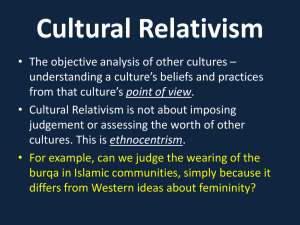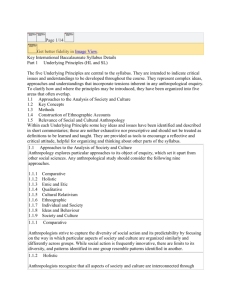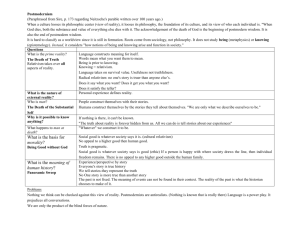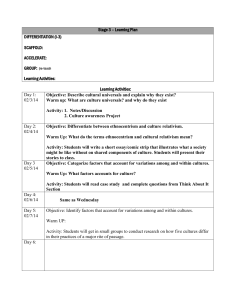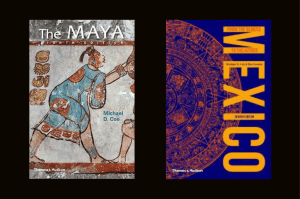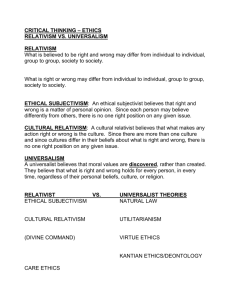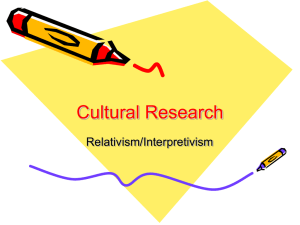Key Aspects of Anthropology
advertisement
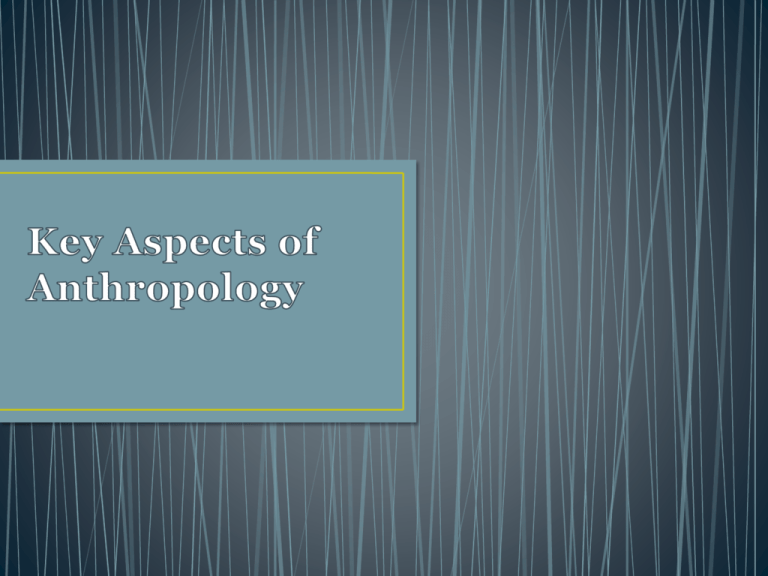
• Anthropology has been called “the most humane of the sciences and the most scientific of the humanities” • Wide range of approaches that span: • Science (hypothesis, observation, and testing) • Humanities (more subjective, based on feeling) • Anthropology as a social science is empirical – based on observations rather than on intuition or faith • Fieldwork (being on location and fully immersed in another way of life) is a core methodological aspect of anthropology. ETHNOGRAPHY • means “culture writing” • provides a first-hand, detailed description of a living culture • based on first-hand fieldwork and research of one culture • The systematic description of a particular culture based on firsthand observation. ETHNOLOGY • the study of one topic in more than one culture • marriage forms, economic practices, religion, etc. • comparative and cross-cultural • uses ethnographic material collected by a number of researchers • Anthropology focus on cultural relativism rather than ethnocentrism • Cultural relativism is the belief that each culture must be understood in terms of its own values and beliefs and not by the standards of another culture • Is the opposite of ethnocentrism • The belief that no culture is better than any other culture • Is gained by exposure to “other” ways with a sympathetic eye and ear to appreciating differences • Anthropology focus on cultural relativism rather than ethnocentrism • Ethnocentrism is judging other cultures by the standards of one’s own culture rather than the standards of other cultures • The belief that one’s own culture is the way of life and that other ways of life are strange and inferior • Absolute cultural relativism says that whatever goes on in a particular culture must not be questioned or change because it would be ethnocentric to question any behavior or idea anywhere. Star Trek’s “Prime Directive”? No one shall interfere with the culture/cultural evolution of another planet under any conditions What are some challenges of absolute cultural relativism? • Critical cultural relativism is an alternative to absolute cultural relativism Critical cultural relativism says that some of what goes on in a particular culture can be questioned or changed because of an idea of a set of universal human rights. What are some challenges of critical cultural relativism?

